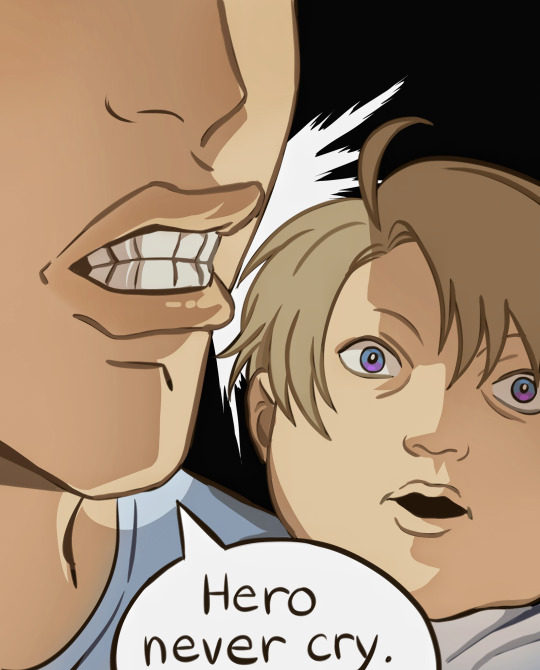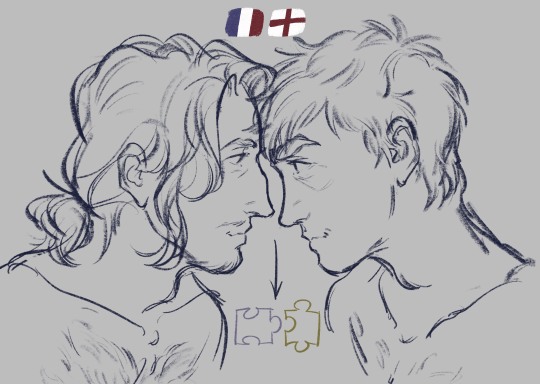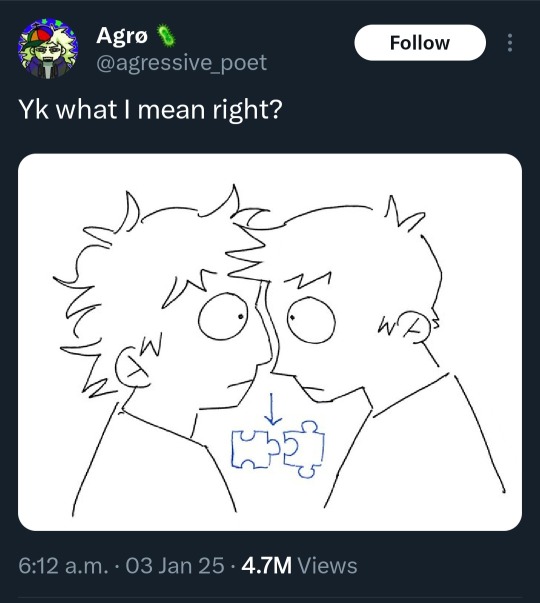#hws England
Explore tagged Tumblr posts
Text

lavender marriages are actually so romantic
101 notes
·
View notes
Text
MY DADS

goofy old men yaoi (who explored each other's bodies back and force a long time ago)
#hetalia#aph#hws#hetalia world stars#hetalia axis powers#aph france#aph england#hws france#hws england#arthur kirkland#francis bonnefoy#fruk#art#artists on tumblr
371 notes
·
View notes
Text

Slowly but surely I am working on updating the broken links for the older doujinshi. If you notice that one of the links is broken, please let me know so I can fix it.
Title: Royal Milk Tea Circle/Artist: Tamagobakudan Pairing: Japan/England Warning: Hermaphrodite!UK, milking, hymen-breaking Rating: R-18 Zip: http://okfan.livejournal.com/43223.html
#ok-scans#aph england#arthur kirkland#aph japan#kiku honda#hws england#hws japan#jpuk#iggypan#asakiku
9 notes
·
View notes
Text

working on somethingggg (my first animation ever btw) i'll post it here and on my youtube channel when it's ready, so subscribe 👀
#fruk#ukfr#aph fruk#hws fruk#aph ukfr#hws ukfr#aph england#aph france#hws england#hws#hws france#aph#hetalia#hetalia fanart#axis powers ヘタリア#hetalia axis powers#hetalia art#artists on tumblr
69 notes
·
View notes
Text
Chapter 31 update!

Masterpost
Like a river that flows, swift and constant, from beginning to end.
R18 | Engport | On-going
Keep reading
#engport#porteng#hetalia#hws portugal#hws england#hws ireland#this is a louis loison hate club thanks
287 notes
·
View notes
Text

Harpy Hare, where have you buried all your children? Tell me so I say
#hetalia#my art#hws britannia#hws england#hws scotland#hws wales#hws northern ireland#hws ireland#nyo!ireland#british isles siblings#uk bros#i have been listening to this song on loop#and i've had this idea for a long time#that song is just so mama brit and her kids to me#i'm blaming theo for this since they introduced me to this song
36 notes
·
View notes
Text
very few of Arthur's ex-colonies approve of a relationship between Alfred and Arthur.
There is, of course, those who have always resented Alfred for being the apple of Arthur's eye, post-Revolution. Hasn't he taken up enough space in Arthur's heart and mind?
A lot of them believe in Arthur and Lakshmi being "endgame"—the two were in a relationship during the tine Arthur raised them, and they see the relationship with rose-tinted glasses. Arthur already "belongs" with someone, and it is not Alfred.
Ireland is Team Alfred through and through, and she says: stay away from that power hungry asshole. You got out! Don't let him have power over you again.
Scotland agrees. Mostly because he thinks Arthur needs to stop getting what he wants, for once. It's character building.
Australia and New Zealand are forever tied to England through the Commonwealth. Their flag still has the Union Jack. They know how hard it is to extricate yourself from Arthur. So maybe they agree with Ireland, no matter how much they love England.
Matthew hates the idea the most. Hates how Alfred has all of Arthur's heart and mind AND hates the idea of Alfred getting caught up in Arthur's orbit in that way.
Basically: the ex-colonies are USUK antis. Maybe they even decide to partake in some sabotage.
Despite all of that, they can really only watch in horror as the inevitable happens.
#hws england#hws america#hetalia#hetalia world series#aph england#aph america#ukus#usuk#meanwhile kinda see old world as massive shippers#francis and japan and hungary are super passionate#china sees it as inevitable unavoidable written in the stars (positive)#russia agrees (negative)#re: ukus#.txt
22 notes
·
View notes
Text

Commission!!
When you and your boyfriend need to get part time jobs at collage and one of you fucking hates it while the other loves it
#clowny lau art#hetalia#hetalia fanart#hetalia axis powers#usuk#ukus#usukus#hetalia america#hws america#aph america#aph usuk#hetalia england#hws england#aph england
21 notes
·
View notes
Text


don’t be silly, alfred, everyone knows the more skin you show, the stronger your attacks
#half elf arthur saga corninues#also sorry alf my love i could not be bothered to draw armor properly#hetalia#aph#hws#kohii scribbles#my art#ヘタリア#artists on tumblr#usuk#aph america#alfred f jones#hws america#aph england#arthur kirkland#hws england#hetalia fandom#hetalia fanart
22 notes
·
View notes
Text

Let’s get to work! It’s Monday.
#germany monday#hws official art#paperuniverse post#hetalia#hws germany#hws china#hws england#hws america#hws japan#hws north italy#hws russia#hws france
30 notes
·
View notes
Text



Reference
#implied england mpreg. sorry about that!#hetalia#ヘタリア#art#artwork#hws england#hws canada#hws america#alfred f jones#arthur kirkland#matthew williams#hetalia world stars#meme#shitpost
4K notes
·
View notes
Text


☆postage stamps
#hetalia#aph america#aph england#aph canada#aph france#hws america#hws england#hws canada#hws france#face#and if I said I made these just so I could draw another sad revwar mattie.#biathelart
3K notes
·
View notes
Text




very strange enchanted boy
#hetalia#aph england#hws england#arthur kirkland#fanart#my art#aph#i have a lot of made up lore in my head abt arthur and fairies because u used to be hyperfixated on a midsummer nights dream lmao#i have a whole comic script that ill get on someday but basically he gets disowned because of the industrial revolution#loserrr#the fairies arent infallible and they dont rlly gaf what goes on outside of the uk so theyre like i can excuse colonization#but i draw the line at pollution#and big mama titania is like GET OUT!#and its like that scene in the lorax where everyone leaves LMAO#i forgit to add labels to the last 2 drawings but the first are sprites and the 2nd are pixies#i have a whole fairy taxonomy in my head from my msnd era but thats for another day.
1K notes
·
View notes
Text


blorbo sketches
2K notes
·
View notes
Text

confession of a rotten boy
#hetalia#hws hetalia#aph hetalia#hws russia#hws china#hws italy#hws germany#hws japan#hws england#hws france#hws america#TAGGING THIS IS A PAIN DAMN#rochu#fruk#gerita#ok thats enough…
3K notes
·
View notes
Text


noses not exactly fit for it but they're still cute
#thought i should post this here too#fruk#hws france#hws england#aph france#aph england#aph fruk#francis bonnefoy#arthur kirkland#hetalia#hetalia fanart#hetalia world stars#jaynuu-art#instagram stories saw it first
2K notes
·
View notes